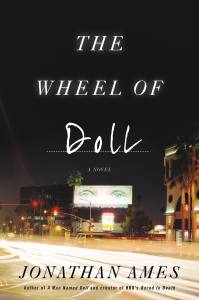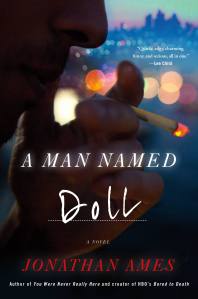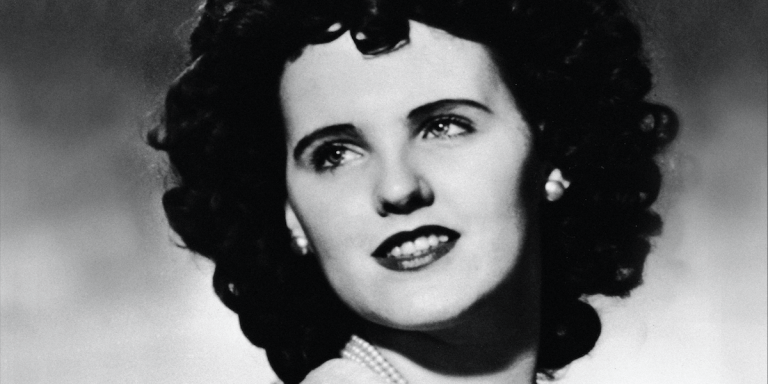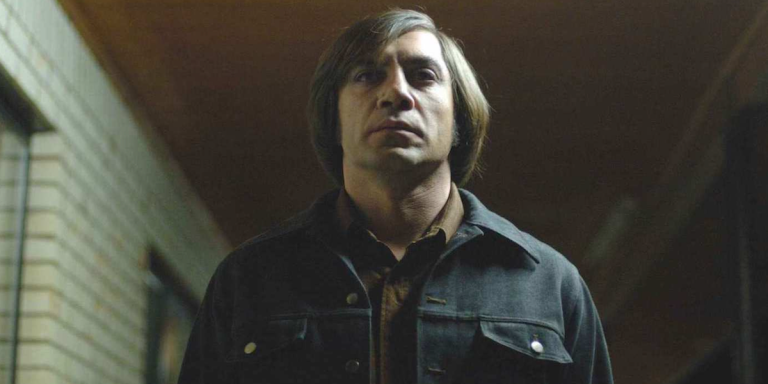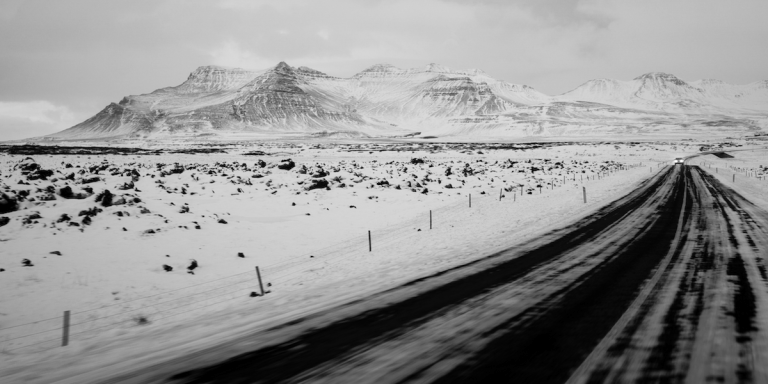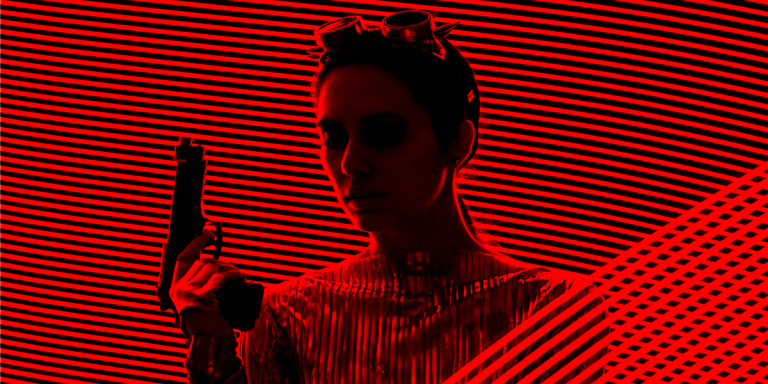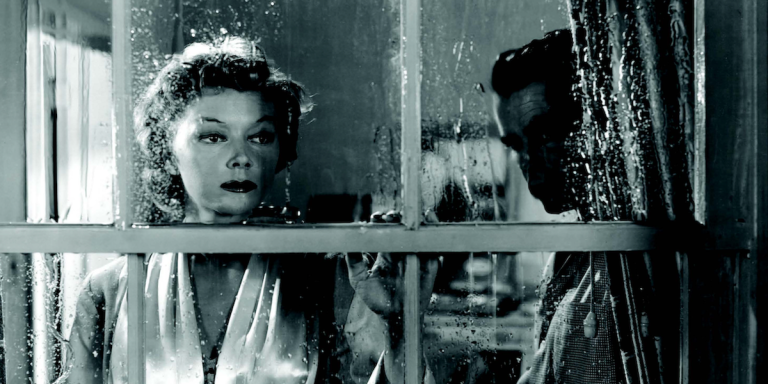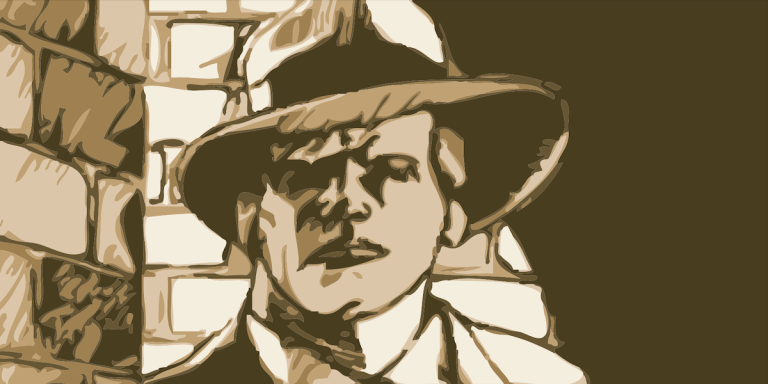Read the Excerpt: The Wheel of Doll by Jonathan Ames
 1.
1.
One of my flaws is that I’m a great one for asking questions, but I’m mediocre to poor at answers. Which isn’t the best trait for a detective.
Though it may be why, of late, I’ve become an armchair Buddhist.
In Buddhism, you’re meant to question everything, including the idea of questioning everything.
And really there are no answers, anyway.
But that’s in Nirvana. Which is where you get to go when you become enlightened. I hear it’s very peaceful there.
But in this messy realm—the realm of women and men and all their myriad problems—there are some answers to some questions.
You can figure some things out.
Which is why you need detectives. Even mediocre-to-poor ones like me. Because finding a killer can be like finding an answer.
But I’m getting ahead of myself.
The afternoon when all this began, it seemed like just another nice cold Los Angeles day—and by cold, I mean sixty-five degrees—early in 2020. January 10, 2020, to be exact, a Friday.
It was around 4:40 and I had just left my house and gotten into my car, a 1985 royal-blue Chevy Caprice Classic, once the preferred vehicle for police forces in the twentieth century. Which was a long time ago now, and not just in years.
I started the Caprice and let it warm up a second, since it’s an old car like an old man and always needs a moment to gather itself and get its pants on. But despite its age and three hundred thousand miles, it’s not ready to die. Very few of us are.
To pass the time, I lit a joint.
Then I took a sip of coffee from my thermos. I’m one of those people—maybe the only one—that lives on coffee and pot and small fish: pickled herring, sardines, and kippers.
As I took a second sip, I put the radio on, which was already tuned to
88.9—a strange college station, my favorite—and then I took another hit of my joint and another sip of my coffee, and feeling that wonderful alchemy of the cannabis and the caffeine—you’re ready to go somewhere but don’t care too much if you make it—backed out of the garage and rolled down my dead-end street, Glen Alder.
I was on my way to my office to meet a potential new client—we had a 5:30 appointment—and I needed the business.
From Glen Alder, I turned right onto Beachwood, and a black Challenger, with tinted windows, parked on the corner, swung in behind me, reckless-like and urgent, and I felt a small tingle of alarm.
Since marijuana doesn’t make me paranoid, except when I eat it, I had to assume that the tingle was coming—like a preconscious telegram — from that special part of the brain that knows things before it knows things. But that part of the brain doesn’t use words. It uses feelings. Like foreboding. And fear.
Then again, I told myself, a muscle car like a Challenger isn’t great for a tail job—it’s too conspicuous and sticks out too much. So maybe it is the pot, I thought. Nobody would follow me in that car.
Or maybe whoever was in the Challenger didn’t care if I spotted them. Maybe they didn’t care about being discreet, which could make them cops. Undercover but showing themselves. The undercover units like muscle cars, and so it was worrisome if it was detectives. The LAPD wasn’t fond of me. Hadn’t been for a while.
I tried to see who was driving the car, but the sun—which was already starting to set — was glinting off the Challenger’s windshield, just about blinding me, though I could distinguish that there were two shapes in the front seat.
Which would make sense if they were police. They always travel in pairs.
When I turned left on Franklin, the Challenger turned left, which wasn’t so unusual, one goes right or left there, and I told myself to forget about it. Told myself I was being jumpy.
Franklin has four narrow lanes, and I went to the far-right lane, nice and slow, which is often how I drive—senior citizen–like and methodical, because I’m usually smoking a joint, like I was just then, and so I try to be extra careful, giving myself plenty of room for error and delayed marijuana reaction time.
But I also drive slowly because I try, as a fledgling student of Buddhism, to be mindful.
I try to do that thing where when you’re driving, you’re driving; like when you’re washing the dishes, you’re washing the dishes.
The result is that between the mindfulness and the marijuana, I’m an annoyingly slow driver, and yet the Challenger didn’t get into the left lane to pass me, as numerous other cars did.
And now that we were heading east, with the sun at a different angle, I could see who was maybe following me: a white male was on the passenger side and a brown-skinned man was driving. And they looked large and wide. Too big for the front seat of the Challenger. So maybe they were detectives. Cops often come in large.
They were close on my tail, and I opened my window—it was getting pretty hazy in the car from my joint—and sent them an obscure smoke signal, written in cannabis, which didn’t merit a response.
So there we were, my Caprice and their Challenger, meandering like a tandem—if we were a tandem—down Franklin, and my office was five minutes away on Vermont, but wanting to test something, I hung a quick right onto Garfield Place without putting on my signal.
Following so close, the Challenger seemed to take the turn a little late, but it still managed to make the right onto Garfield and have it look somewhat intentional.
Fifty yards later, I pulled over to the side of the road. They drove on past, feigning disinterest, I imagined.
But because of their tinted windows, I couldn’t get a look at the white man on the passenger side, which was frustrating, and maybe it was all a coincidence.
So I just sat there, smoking, and watched the muscle car make its way down Garfield—a street of squat apartment buildings—and the light in the sky was violet-hued and beautiful. The sun must have just dipped into the Pacific, cooling itself and turning Los Angeles, as it did each day, into a purple city.
Then the Challenger crossed Hollywood Boulevard, disappearing from my line of sight, and so I did a quick U-turn and headed back up to Franklin.
Five minutes later, I turned right on Vermont, went down two blocks, and then parked my car in the quiet, narrow alleyway behind the Dres- den bar.
I put my joint in the ashtray, grabbed my thermos, and as I slammed my door, it didn’t really surprise me to see the Challenger coming down the alley, glowering in its dark paint job.
I could have run or got back into my car, but there was the feeling that I would only be delaying the inevitable, and so I waited for them in the beautiful light. It was what they call in the movie business magic hour.
The Challenger parked right behind my Caprice, blocking it, and the two men boiled out, moving fast for their size. They were both about six four, 250, like brother slabs of beef in a meat market.
The white beef looked like a farm boy from the Midwest, and the brown beef looked Hawaiian. Midwest had blonde hair buzzed down like a peach and Hawaii had black hair pulled back tight in a ponytail.
They both were wearing jeans and sneakers and hoodies, and they had that look. A look that said they wanted to hurt someone. That someone being me.
I did a quick scan of the alley for witnesses, but we were all alone. On the plus side, these two didn’t seem to be cops. Their eyes were too eager: violent but maybe not cruel.
So I put my thermos on the roof of my car, like it was a casual thing to do, and I fingered the steel baton I was carrying in my sport-jacket pocket, because I needed something to even the odds. There were 500 pounds of them and only 190 pounds of me, most of it alchemized silvery fish from a can.
“You boys seem to know where I live and where I work,” I said, as they came to the front of the Challenger and were about six feet away. “How can I help you?”
I pegged them to be in their early thirties and I called them “boys” because I was fifty-one and missing a kidney, which made me more like sixty-one. When you lose an organ you lose a decade of your life, someone told me. Which is probably not true, but it’s a good line when you’re looking for sympathy.
“Yeah, you can help us,” said Midwest. “You can help us remember Carl Lusk.”
That’s when I knew for certain the baton needed to make an appear- ance, and I brought it out and snapped it to its full sixteen-inch length. It’s one of those extendable steel batons you can buy on the internet if you’re a wannabe fascist or in the security business like me.
Midwest saw my weapon, but it didn’t scare him—probably because he had never been hit by one—and he took two big steps forward, with his fist cocked, and as he threw his haymaker, I took a step to my right and slashed down on his wrist, breaking something, and he went straight to the ground, mewling.
Then Hawaii charged me, going for a tackle, and I squatted and swiped at his knees with the baton and heard a nice crunch, which made him come up short and fall, but he still was able to knock me to the asphalt, and I landed hard on my ass, with half of him on top of me.
I then hit him brutally across the back of his broad shoulders, which he definitely felt, and I was able to push him off me, like pushing off a piano, and Midwest was still on his knees, wailing; his hand was hanging from his wrist at a weird angle.
I stood up, a little slowly, panting from the adrenaline and the fear and hitting the ground hard, and Hawaii also stood up, quicker than I expected, and he punched me in the face, a nice shot to the left cheekbone, and I staggered back and faltered, which made him hopeful.
He then rushed me with a looping punch, and I jumped up—I don’t know where the instinct came from—and I hit him on the top of his head with the baton, like chopping a piece of wood, and he went down face-first into the pavement.
He wasn’t knocked out, but he didn’t get up. He curled into a ball, grabbed the top of his head, and vomited. Then I looked around. My fight with these two had lasted less than a minute and the alleyway was still empty: no one had seen anything.
I didn’t want to go near the vomit, and so I limped over to Midwest and he looked up at me like a child.
His pain had made him innocent again, but not too innocent, and I raised the baton up into the air, like I was going to strike him, but I was just bluffing, playing the tough guy, and I said, “Give me your phone.”
He obediently reached into his hoodie pocket with his good hand and gave me the phone. I bypassed his code, hitting the word emergency in the lower-left corner, and put it on speaker.
“I called 911,” I said. “Keep me out of it and I won’t press charges. And I won’t hit you again.”
I handed him the phone—we could both hear it ringing through the speaker—and he just looked at me; he was in some kind of shock, holding his arm out away from his body, like it scared him, which I could understand.
His hand was dangling off his wrist like a dead bird, and I said, “I’m very sorry about Carl Lusk.”
And I meant it.
Then a woman’s neutral voice came out of the phone: “This is 911, what is your emergency?”
Midwest then put the phone in front of his mouth, looked at me, and mumbled, “I’ve been in an accident.”
Satisfied, I grabbed my thermos off the Caprice and went quickly through the back door of the Dresden. There was time enough for a swift drink before my meeting, and I wanted some ice for my face.
2.
Billy, middle-aged, bald, and slim-hipped from cocaine, was behind the bar and the place was empty. The Dresden had just opened. It was five p.m.: happy hour, no pun intended. I took my regular stool, and Billy, knowing what I drink and how I take it, came over with a bottle of Don Julio and poured me half a shot in a tumbler and added ice.
Marijuana, I abuse. Alcohol, I absorb like medicine. In small doses.
Been like that for a while. Even when I had two kidneys.
I nodded at Billy, said, “Thanks,” and I took a spinstery sip, and right away the tequila mixed nicely with whatever weed was left in my system. I was smoking so much then that the stuff died quick in me. At that point it was practically a placebo.
Billy watched me and said, “What happened to your face?”
“My beauty mark?” I said, half joking.
“No, your new one.”
I looked in the bar mirror behind Billy and a nice marble-size lump was already forming on my left cheekbone, and the beauty mark I had referred to was just beneath the marble: a four-inch scar that goes straight down to my jawline like a zipper.
I touched the marble gently and said to Billy, “I opened up my engine all screwy and clipped myself with the hood. Could you put some ice in a napkin for me?”
Billy knew I wasn’t telling the truth—bartenders are wonderful lie detectors—but he didn’t challenge me on it. Dealing coke on the side had killed a lot of Billy’s brain, but he had learned one important life lesson: Keep your mouth shut more than you open it.
“Sure, a little ice,” he said, “no problem,” and with a shrug at my lie, he grabbed a napkin and bent over the ice bin. The bar lights glinted off his bald skull, and I thought of Hawaii outside, holding the top of his head.
Billy passed me the ice and I pressed it against the marble.
“Seen Monica?” I asked, in a moment of weakness.
“Nah,” he said. And then he left me there. Abruptly. Like I said, he was a closemouthed type, and then some other drinkers came in to keep Billy busy, and I took another sip of my tequila.
The Dresden doesn’t have any windows—it’s a dark, shadowy lounge with red-leather booths and a hardworking piano—and I was tempted to go back outside and see if the ambulance had arrived yet, to see if those boys were okay, but it was smarter to stay right where I was and not return to the scene of the crime.
So I swirled the tequila under my tongue, homeopathically, and then I lowered the ice from my face. I was hoping that somehow the swelling would already be going down before my meeting, but I looked in the bar mirror and it wasn’t down, it was getting bigger, and I put the ice back on.
And my beauty mark — the ugly scar that Carl Lusk had given me—also looked like shit. It looked like a thin pink worm dying on a sidewalk after a rainstorm; the kind you pick up and put in the grass and hope for the best, but you know it won’t make it.
Lusk, whom Midwest had wanted “help” remembering, was an ex–football player for USC, an All-American offensive lineman, and I figured those two boys outside had been his teammates, maybe fellow line-mates, and I knew why they had come looking for me.
Nine months earlier, I had been working security at the Miracle Thai Spa, on Argyle and Franklin, and Carl Lusk came in one night and started smoking meth in the salt-scrub room. A girl named Mei was doing his scrub and the meth hit Carl funny. He tried to strangle Mei, tried to kill her, but she managed to scream, and then I entered the picture. With my baton.
Unfortunately, he had come to the spa with a big hunting knife — stashed in the backpack he had brought with him—and so then it became knife versus baton.
And knife won.
He cut my face in half. Then I took my gun out.
Which wasn’t really fair, and I was hoping to just slow him down, but there was blood in my eyes, and I shot him, unintentionally, in the neck, and he died at my feet.
It was nothing to be proud of, in fact it was the opposite, and he was the first man I had ever killed. But I wasn’t charged. It was deemed self-defense, and Mei, thankfully, survived.
The local news and the papers ran with it for a second—ex-usc star killed at spa—but then it quickly faded away and the world seemed to forget about Carl Lusk.
But now, nine months later, Midwest and Hawaii had come out of the woodwork because Carl was back in the news. His father, Bill Lusk, a well-known and decorated homicide detective, had committed suicide on Christmas Day by jumping off the Vincent Thomas Bridge in the Los Angeles Harbor. A movie director had done it once and there have been a number of copycats since.
When Lusk jumped the whole gruesome thing was caught on somebody’s phone, which he must have wanted, his grief to be broadcast far and wide on Christmas Day, and all the articles said he had killed himself because he couldn’t get over what had happened to his son.
What especially hurt Lusk, according to one columnist in the LA Times, was that the man who killed his boy—me, the lowly security guard—was an ex-cop. A member of the LAPD brotherhood. Which made it even more of a betrayal for Lusk. He had given his life to the force and his son had been gunned down like a felon. Which he was. A felon. And that must have been one more thing Bill Lusk couldn’t accept and so he took it to the bridge.
All this brought my name back into circulation, and so Carl’s old teammates — I had to figure they were ex–football players, it was the only thing that would account for their size—had done some clever googling, found me, and I had hurt them. Which I regretted. I probably should have run away. In Buddhism, you’re not to cause pain; the whole idea is to lessen the suffering of others, not increase it.
I finished my tequila and stood up. I left a ten on the bar, exited out the front, and then walked down Vermont to my office. The light was no longer purple. Magic hour was over.
3.
By 5:15, I had the key in the door of my professional chambers, which are on the second floor of a two-story building, half a block from the Dresden. My office was originally a storeroom back in the day, and it’s shaped like a coffin, long and narrow, and doesn’t quite seem normal. It’s more like a room in a dream: all distorted and elongated, where things happen that don’t make sense.
But you can’t beat the rent. It’s frozen in place around 1979, when human beings could still afford things, which is a favor to me because I know the landlord and he’s partial in my direction. Which is my fancy way of saying he likes me.
A while back, I helped him with his painful divorce — his brother was sleeping with his wife, a grotesque double betrayal—and I nursed him through a three-day suicidal breakdown after I gave him the news. Since then, he gives me the office for practically nothing as a kind of lifelong thank-you, though I’m not sure anybody else would rent it.
But that doesn’t matter. I need a place to meet clients that’s private and a little obscure to give them a sense of comfort and anonymity, and if the office exudes a dingy feeling that’s okay. It matches what they’re coming to see me for, and so in an odd way it puts them at ease. They think: Here’s someone who will get dirty for me.
To give it a little class, though, some pictures of me in the Navy and the LAPD hang on the wall, and there’s a show filing cabinet with nothing in it, and a printer that makes half decent photos if I get divorce work, which isn’t too often.
When I let myself in that day, the office was nearly pitch-black, but I didn’t turn on the ceiling light. I wanted to be able to look out the window without any glare.
I pulled up the blinds and down below was the alleyway. Night was coming on fast, and I pressed my face against the cool window to help with the swelling, and my timing was perfect. Just then an ambulance, with flashing lights, drove past—on its way out—and I felt relieved. The football players would be taken care of, and I had ten minutes to further gather myself before my appointment. Which was with a woman named Mary DeAngelo, who had contacted me through my rather simple website the day before, writing that she needed help locating her mother and did I do that kind of work? I said I did, and we set the meeting.
She didn’t ask me about my fee in her emails and I didn’t bring it up, not wanting to scare her off. I always ask for four hundred a day, but I’m a weak negotiator and I’ll slide all the way down to a hundred a day, especially if it’s in cash.
And truth is, I’ve been known to go as low as fifty a day. You can buy a lot of sardines with fifty bucks, and I’m not proud. Or successful. But I work for myself and that’s something.
My website indicates that I’m a “security specialist,” which is a vague term that covers a lot of ground. I used to be a licensed private investigator—had a license for over fifteen years—but I lost it shortly after Carl Lusk opened my face and I killed him in self-defense.
But that’s not why I lost it.
Later in the same week that I killed Carl Lusk, I uncovered a doctor in Malibu who specialized in performing very expensive black-market organ transplants.
The doctor’s patients, whom he treated at his compound in the Malibu hills, were very wealthy people who didn’t want to wait on line—or couldn’t survive waiting on line—in the straight world, and so they came to the black market for the organs they needed and would pay whatever was asked. It was a lucrative business.
I stumbled into the whole thing trying to help a friend, and in uncover- ing the doctor, who had killed twenty-three migrants in order to harvest their bodies, I broke a number of laws and had my license taken away.
I also lost my kidney. The doctor, a man named Madvig, took it out of me and put it in one of his patients. Later, I killed Madvig and two of the men he worked with.
Not out of revenge, really, but to escape from being further stripped. This all happened back in March of 2019, and just a few days after the
Carl Lusk story, I got even more coverage in the LA Times: private investigator uncovers gruesome scene in malibu: twenty-three bodies found.
And after the story broke, I suddenly had a lot of business but also no license.
So I quickly reinvented myself as a “security specialist” and was doing the same things I had done before to help people, but with less protection under the law.
But I didn’t care. I was happy for the work.
Before that I had been broke for a long time and had been scraping by as a glorified bouncer at the Miracle spa, but now, just nine months later, things had already dried up again, which is why I was hoping that Mary DeAngelo would have money to spend—even fifty a day—and that she would hire me. I had a little less than a thousand in the bank, and I didn’t want to go back to working at the spa. It hadn’t been so good for my health the last time.
And just then, on cue, there was a timid knock at my door, and I turned away from the window. Turned away from the sight of the ambulance carrying off the vanquished football players.
But I did a quick bit of tonglen for them. That’s this Buddhist thing, like a prayer, where you breathe in someone’s pain—all their confusion
and heartbreak and sorrow—and then when you breathe out, you send them well-being and love, like you’re an antenna of some kind.
And they don’t know you’ve done this. But maybe they do.
And then there was another timid knock at my door.
Mary DeAngelo was a few minutes early, and right then would have been a good time to get one of those telegrams from the back of my brain that alerted me to danger. But no messages were sent. Or maybe I wasn’t home to receive them, and I said, “Come in.”
Discover the Book
The eponymous and hapless detective Happy Doll returns with a new philosophy and a new case in this second installment of a series "that's a tightly coiled double helix of offbeat humor and unflinching violence" (New York Times Book Review).
Although badly scarred and down to his last kidney after the previous caper, Happy Doll is back in business. When a beguiling young woman turns up at his door, it’s Doll’s past that comes knocking. Mary DeAngelo is searching for her estranged mother, Ines Candle—a singular and troubled woman Doll once loved. The last he’d seen her she’d been near-death: arms slit like envelopes. Although she survived the episode, she vanished shortly thereafter. Now, years later, Mary claims Ines is alive and has recently made contact—messaging her on Facebook and calling her from a burner phone—only to disappear once again. Although his psychoanalyst would discourage it, Doll takes the case, desperate to see Ines again. But as the investigation deepens, there are questions he can’t shake. What’s led the flighty Ines to reappear? Is Mary only relaying half the truth? And who is Mary’s strange and mysterious husband.
Happy Doll is a charming, if occasionally inexpert, private detective living just one sheer cliff drop beneath the Hollywood sign with his beloved half-Chihuahua half-Terrier, George. A veteran of both the Navy and LAPD, Doll supplements his meager income as a P.I. by working through the night at a local Thai spa that offers its clients a number of special services. Armed with his sixteen-inch steel telescopic baton, biting dry humor, and just a bit of a hero complex, the ex-cop sets out to protect the women who work there from clients who have trouble understanding the word "no."
Doll gets by just fine following his two basic rules: bark loudly and act first. But when things get out-of-hand with one particularly violent patron, even he finds himself wildly out of his depth, and then things take an even more dangerous twist when an old friend from his days as a cop shows up at his door with a bullet in his gut.
By clicking 'Sign Up,' I acknowledge that I have read and agree to Hachette Book Group’s Privacy Policy and Terms of Use
